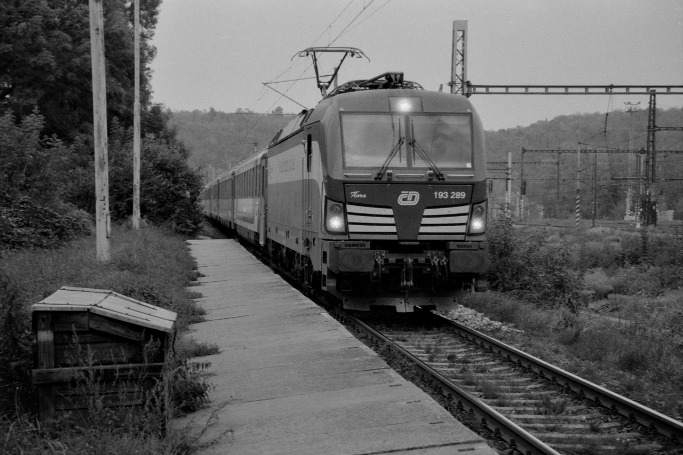You know it’s a dream because you can’t read the street signs
but you get on the train anyway and find a spot next to the window
as it pulls slowly out of the station.
You pass high rises and factories, switching yards and loading docks.
The train picks up speed on the way out of the city.
Telephone poles flash by.
That’s another thing that doesn’t work in dreams: the phone;
you keep straining to hear someone at the other end.
Now you cross the county line and the buildings thin out.
You look down into scabby backyards. Laundry on lines
and kiddie pools upended. Dogs circling on chains.
It seems wrong to look at the backs of houses
where things are junked, abandoned,
piled up and unsorted.
You’ve been here before, you’re sure of it now.
The train slows into a halfway familiar neighborhood.
You step onto the platform.
The shops are cleared out, like gangs had come through
and looted your memories.
But you keep moving through the foggy streets,
recognizable only after you see them, not before.
That bridge over there for example, or the tool shed
nearly visible through the trees,
they make sense only afterwards.
A photographer once told you, Look forward, yes,
But don’t forget to look back…
And now you turn and squint over your shoulder.
It was there right behind you all along.
The small house rises on concrete steps,
the rough wooden planters wet and rotten.
You stand before its ghostly shape veiled in fallen clouds;
it has no foundation, a ship on a blurry ocean.
You picture your family inside, moving about:
the dinner table set, napkins folded,
a leather briefcase in the hall closet,
all the agreed upon details of a groundless evening.
You step onto the speckled Formica of the entry.
Voices come from a TV down the hall
but you go into the child’s room instead, your room,
pull the blanket and sheets off the bed.
Look underneath:
at last you find what you’ve been searching for:
a nightlight left burning for years.
Published in Value Anthology
Photo by Lukáš Lehotský on Unsplash
